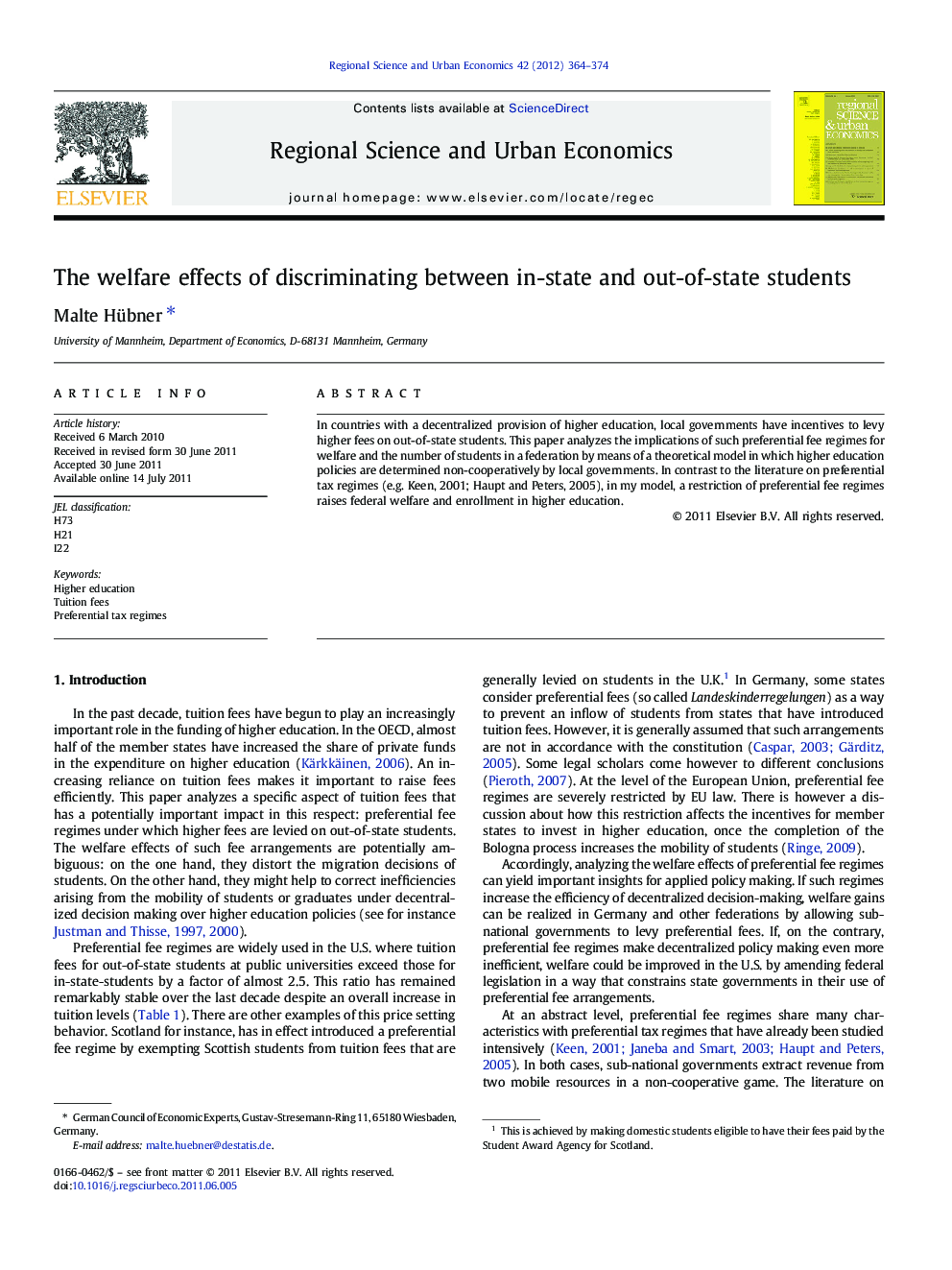| کد مقاله | کد نشریه | سال انتشار | مقاله انگلیسی | نسخه تمام متن |
|---|---|---|---|---|
| 981127 | 1480551 | 2012 | 11 صفحه PDF | دانلود رایگان |

In countries with a decentralized provision of higher education, local governments have incentives to levy higher fees on out-of-state students. This paper analyzes the implications of such preferential fee regimes for welfare and the number of students in a federation by means of a theoretical model in which higher education policies are determined non-cooperatively by local governments. In contrast to the literature on preferential tax regimes (e.g. Keen, 2001; Haupt and Peters, 2005), in my model, a restriction of preferential fee regimes raises federal welfare and enrollment in higher education.
► I develop a model of a decentralized provision of higher education in a federation.
► First paper in this literature that endogenizes number of students.
► Preferential fee regimes distort student's migration decisions.
► Preferential fees regimes therefore worsen equilibrium policy choice.
► Restricting preferential fees might increase welfare and enrolment rates.
Journal: Regional Science and Urban Economics - Volume 42, Issues 1–2, January 2012, Pages 364–374